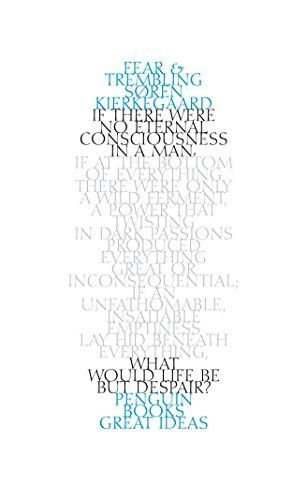
Fear and Trembling
The perfect books for the true book lover, Penguin's Great Ideas series features twelve more groundbreaking works by some of history's most prodigious thinkers. Each volume is beautifully packaged with a unique type-driven design that highlights the bookmaker's art. Offering great literature in great packages at great prices, this series is ideal for those readers who want to explore and savor the Great Ideas that have shaped our world. Inspired by the trial of a bureaucrat who helped cause the Holocaust, this radical work on the banality of evil stunned the world with its exploration of a regime's moral blindness and one man's insistence that he be absolved all guilt because he was 'only following orders'.
Reviews
charisa@charisa
Christopher McCaffery@cmccafe
Melody Izard@mizard
Simon Elliott Stegall@sim_steg
Michelle Xu@la_xu
Emily McMeans@emilymcmeans
riya ☆@lilcritt3r
h@pusongwazak
Melih @melhiron
iamazoo@iamazoo
Will Vunderink@willvunderink
Alan@alancph
Gavin@gl
Clare Robnett@clarebear325
Ben Radford@ben_radford
Harry@kleptwo
Anas A@kenkitano
Cal Desmond‐Pearson@social-hermit
Mustapha Othman@rascality
Emily Morgan@e333mily
Gaurav Verma@gaurav99
Roger Amundsen@gododger
Mark Wadley@markplasma
Maja Pestka@majka